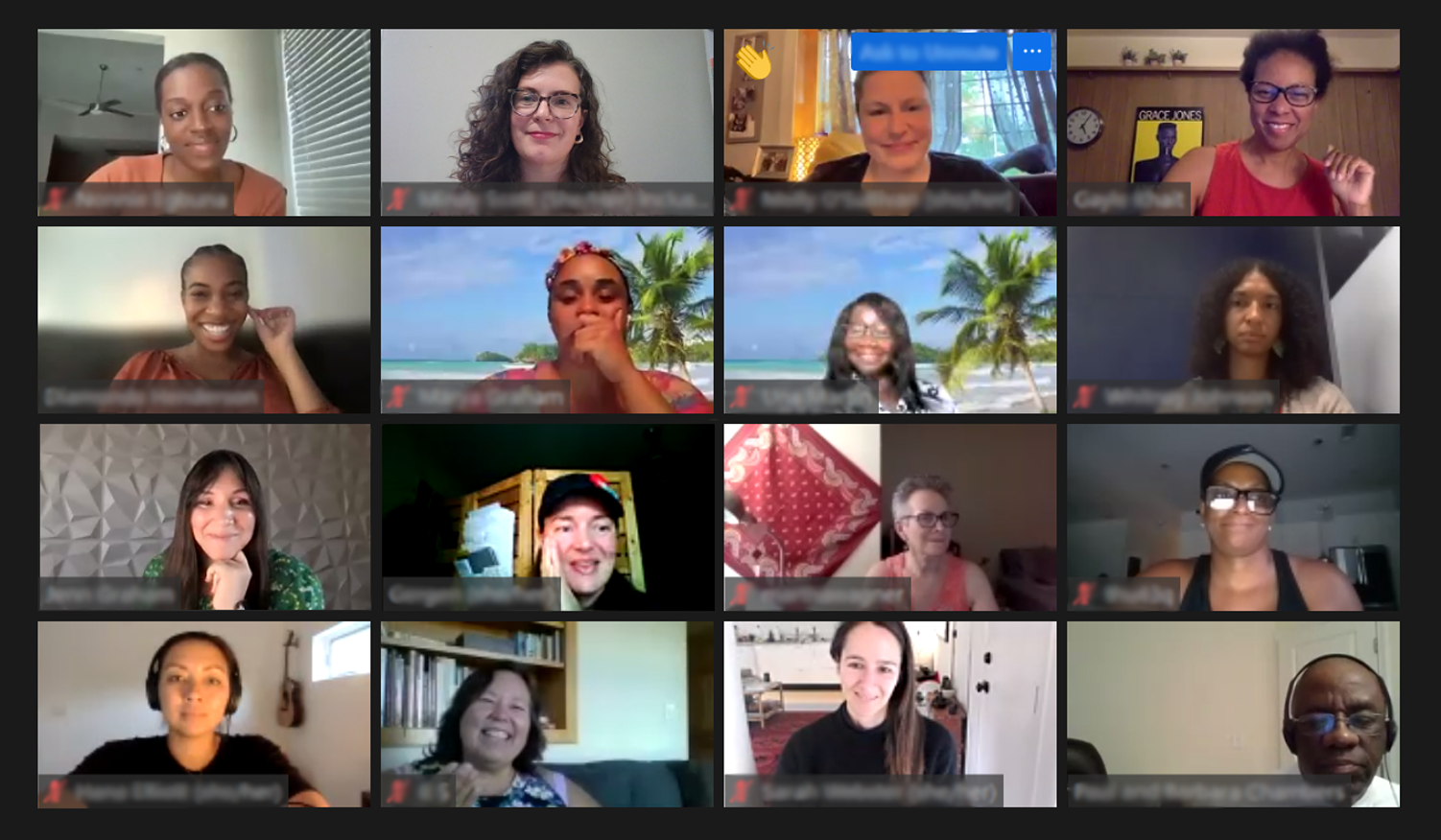Last week, we debuted our newest conversation, “Teaching Race: The CRT Debate.” Joined by guests from all over the world, we were able to explore this hot button topic in a structured, constructive, and productive manner. Here are five takeaways from the event we hope help you navigate this and other discussions in the future.
1. There is no monolithic racial experience.
One guest reflected upon her upbringing in Antigua, and the fact that she didn’t know she was “Black” until coming to the U.S. Another participant poignantly stated, “I can be my own kind of Black.” These comments speak to the idea that there is no one-size-fits-all racial experience; each of us is influenced by our unique family structures, regional norms, values, traditions, and more.
There is immense danger in generalizing an entire group of people, in the “single story,” and it is crucial that we honor every individual’s lived experiences.
2. Guilt deters action.
Like many things in life, movements toward racial justice are often impeded by emotion. White guilt (or white fragility) refers to the tendency to see observations of racial inequity as direct and personal attacks on one’s character, often leading to defensiveness or – perhaps worse – silence. A lack of accountability often leads to a perceived lack of responsibility for changing the status quo, thus maintaining systems of racial oppression.
All of this to say – emotional responses are valid. The key is to avoid letting reactive feelings stop us from taking action to promote a more equitable society.
3. “Rights aren’t a pie!”
 This simple quote from an impassioned attendee says all that needs to be said about equal rights and racial equity. To grant previously denied rights or allowances to one person or group does nothing to detract from your own rights or allowances. Rights are not nonrenewable resources, and there’s absolutely enough to go around.
This simple quote from an impassioned attendee says all that needs to be said about equal rights and racial equity. To grant previously denied rights or allowances to one person or group does nothing to detract from your own rights or allowances. Rights are not nonrenewable resources, and there’s absolutely enough to go around.
4. To ignore race is a privilege.
One guest put it plainly: “You’re privileged if you don’t have to think about race.” Whether or not you think children should learn about racial history in school is one thing, but to pretend that race does not exist is to undermine the experiences of those who feel the effects of their racial identity each and every day. If you feel as though your race plays no significant role in your life, consider the ways you might support those for whom race is an undeniable factor in their lived experience.
5. There is power in the personal narrative.
One takeaway that seems to be consistent across all Inclusivv events is that our personal stories are our greatest assets. Conversations such as these are not about changing minds, but about listening to and learning from one another. When we lead with our stories, we distance ourselves from division and bias, and ultimately put everyone in a position to be vulnerable, learn and grow.
Did you miss the Teaching Race: The CRT Debate event? Don’t worry!
Now through the month of September, you can access the conversation FREE on our website. Don’t miss this opportunity to engage with your community on this important topic.



.png?width=950&height=1022&name=Belonging%20(4).png)